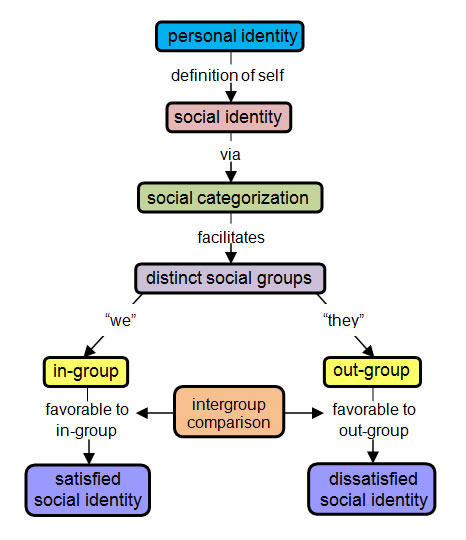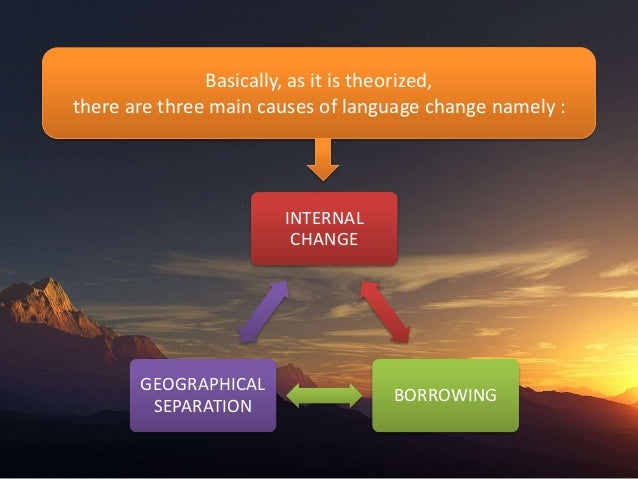SOCIOLINGUISTICS PORTFOLIO
It is a blog about some topics related with the change in the languages, accents, variaton etc take into account the nationality, geographic location, intention, gender, so, many aspects of the culture and breeding in each person.
viernes, 20 de noviembre de 2015
IDENTITY THEORY

TAJFE (1978) Identity can be
- personal
- social = Assumed = sex (physical consideration)
Gender (mental
consideration)
Imposed = age, family,
Negotiated = name, nationality, religion,
Comunication Theory Identity
CTI has 10 common axiomatic propositions (for more information
on these
propositions and extension to each of the frames, see Hecht et al., 2004).
The basic overarching propositions further define identity and are:
1. Identities have individual, social, and communal properties.
2. Identities are both enduring and changing.
3. Identities are affective, cognitive, behavioral, and spiritual.
4. Identities have both content and relationship levels of interpretation.
5. Identities involve both subjective and ascribed meaning.
6. Identities are codes that are expressed in conversations and
define membership in communities.
7. Identities have semantic properties that are expressed in core symbols, meanings, and labels.
define membership in communities.
7. Identities have semantic properties that are expressed in core symbols, meanings, and labels.
8. Identities prescribe modes of appropriate and effective communication.
9. Identities are a source of expectations and motivations.
10. Identities are emergent.
Trough this video we can understand a little bit more about if bilingual minds are better or not, obviously taking into account the most recient reseacrh done by Aneta Pavlenko (2006) where we can discover a new perspective about multilingualism and emotions. Pavlenko identifies four
main themes: linguistic and cultural differences, distinct learning contexts, different
emotional responses to the languages and different levels of proficiency. Because learning new languages people tend to involve different emotions, and brain connections.
WHO AM I?
I am a simple person, very shy but with some expectatives about another people. I can be funny some time and I am usually excelent friend and good classmate.
I consider a homely girl. My best friend that I am kindness, solidarity, honest and naive.
Often, I am weak and a lonely person. However when I learn something new topic and my accademic performance is good, I feel very enthusiastic.
CHANGE
- in simplest terms it is when one variation replaces others as the standard or high prestige variant within a society.
- e.g. Hwaet! = Hi
- Change can be Internal or External, conscious or unconscious.

- Can be divided in two: Top-down or bottom-up change.
- Top-down (unconscious change) occurs when a memeber of the upper class (usually a new member) creates a new linguistic form.
- This linguistic form is taken up by other upper class members and then middle class members who seek to emulate the speaker.
The middle class takes up the new form as means of appearing to be an upper class speaker. what is the mechanism? prestige
The same mechanism results in the working class taking up the same form. this machanism works quickly and language may change in the space of a few years.
 Botton-up change occurs when working class language filters to the upper class either through saturation of a form or through the middle class identifying with the covert prestige of the form.
Botton-up change occurs when working class language filters to the upper class either through saturation of a form or through the middle class identifying with the covert prestige of the form.
The upper class eventually takes up the forms as the prestige of the form changes and they accede to middle class language.
- Pidgins and creoles are the result of contact with several cultures, specifically where there is a lack of a lingua franca among at leats 3 groups.
- A pidgin is a lingua franca created to provide basic communication means among at least three groups
- It dreams most of its vocabulary and structure from the dominant language - The lexifier (the language which gives the words) and some words from the other languages.
- Creoles are formed when pidgins get L1 speakers
- The L1 speakers add complexity to the language and start to lexify not from the dominant language but from languages B+C
- Pidgin grammatically simple
- Creole grammatically complex
jueves, 19 de noviembre de 2015
INDEXICALITY
The mental image / representation of a person or of a group of people according to a linguistics variable.
So, indexicality is a mental persepcion about someone depending on the language or the way in which the person speaks taking into account region or nationalitation. For instance: German people are seen as angry people, Argentines are seen as presumed people, Paisas are seen as productive and creative people, or
Costeños are seen as lazy people.
Accommodation is the proces in which speakers adapt their linguistic behavior in light of their interlocutors behaviour and their attitudes towards their interlocutor ( may be a conscious or uncounscious process).
PRESTIGE

- The degree of respect or importance given to a person by members of society.
- Describes the level of respect accorded to a language or dialect as compared to that of other languages or dialects ina speech community.
it is generally socially acknowledge as "correct" ans therefore valued highly among all spaekers of the language
|
|
a specific, small group of speakers shows positive evaluation of and orientation towards a certain linguistic variety, usually without the speakers awarness. the variety is usally not accepted in all social groups (e.g. youth language)
|
Suscribirse a:
Entradas (Atom)
















